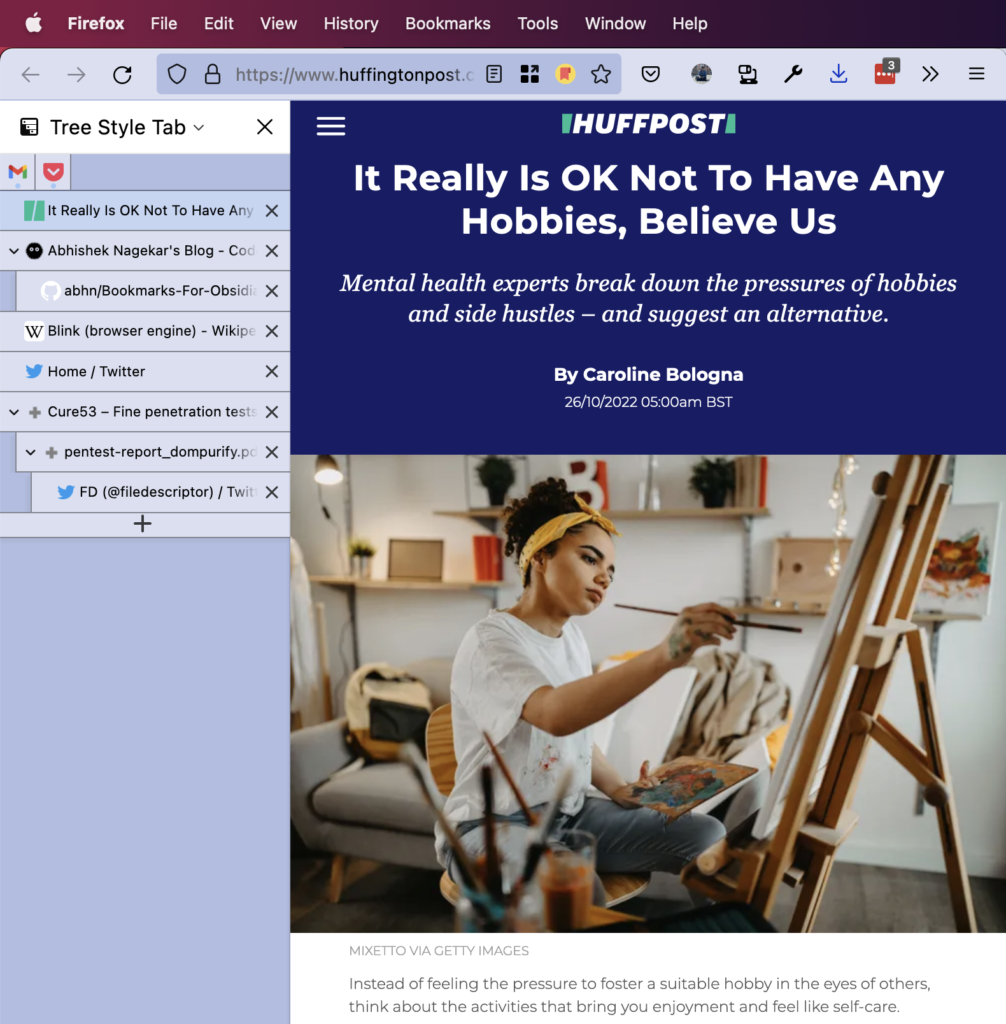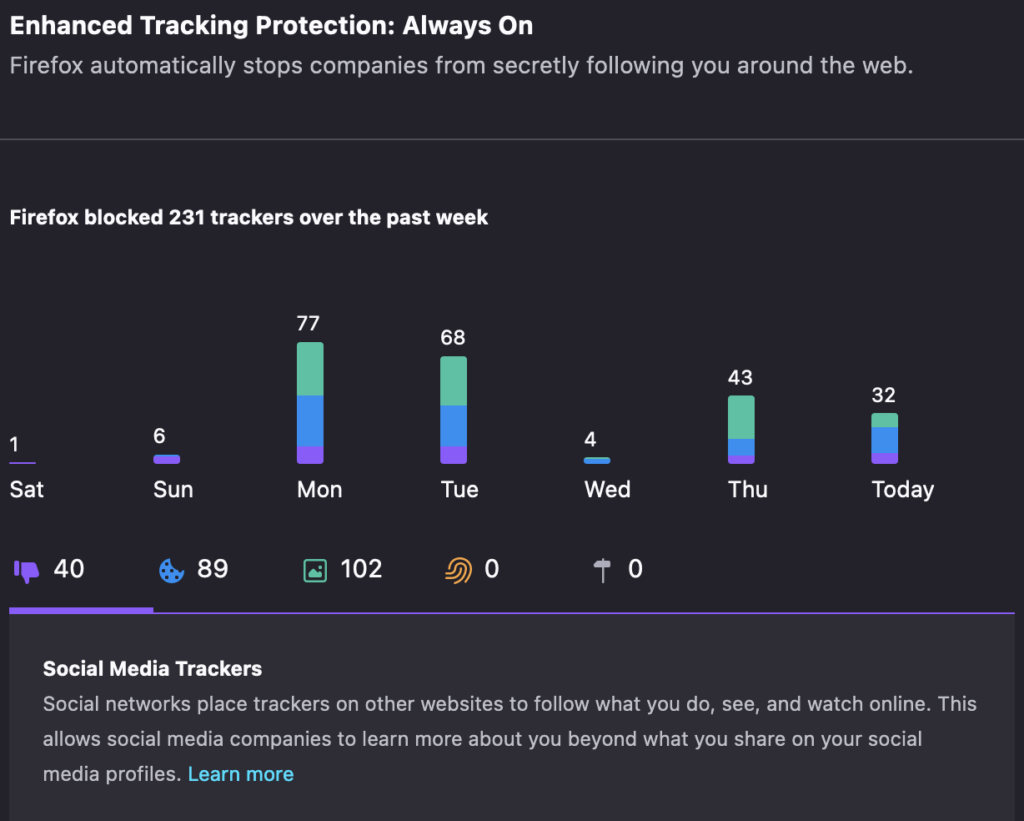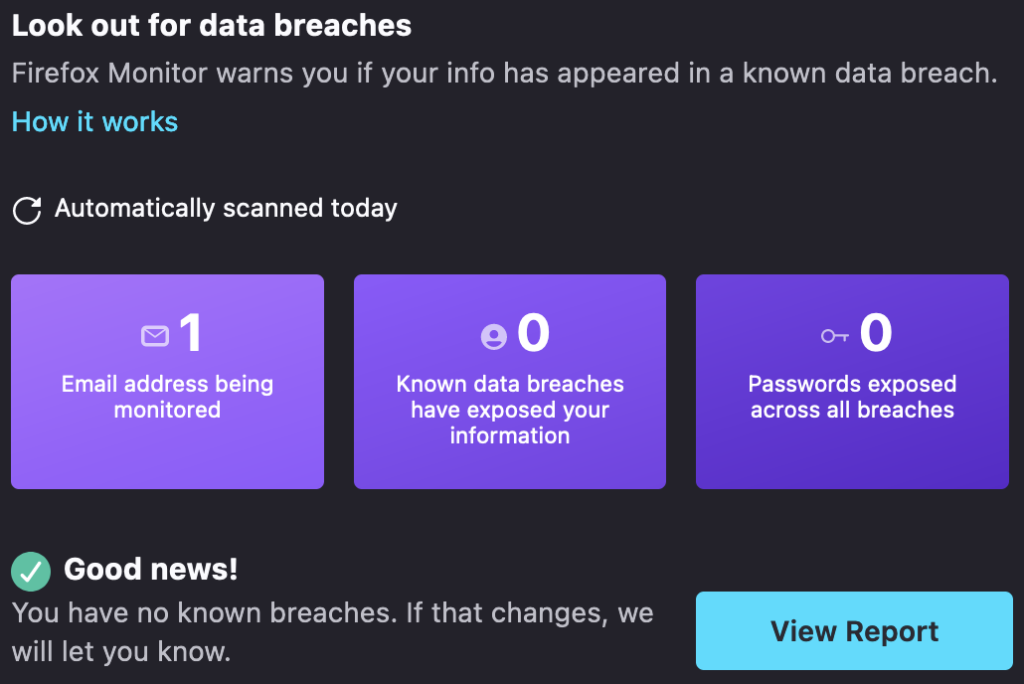Like many of my friends during the late 2000s, I embarked on my internet journey with Firefox. It started with Firefox being the only browser that could reliably resume downloads in the event of a power outage, which were frequent in my part of India, and that was very useful with a slow internet connection that gave me 10KB/s on a good day.
A few years later I learned about free and open source software, and started thinking of the internet as a public resource and a great equalizer of access to knowledge and opportunity. Firefox was a very natural fit in this newly discovered world of mine.
Around 8 years ago, I published top reasons why you should start using Mozilla Firefox right now documenting the various reasons why Firefox should be the browser of choice for anyone who desires a safe, private and customizable web browsing experience.
Since I’m now part of the organization that I’ve so long revered, I thought an update to the original post is appropriate, and started listing some reasons why Firefox is still my browser of choice today.
I am slightly biased towards Firefox, but in my defense that’s hardly ever changed.
Features that enhance your web experience
One of the reasons people love Firefox is its customizability. The functionality can be extended using Addons and for the truly adventurous, Firefox’s UI is customizable using a bit of custom CSS. Given how personal web browsing is and how much time we spend using a browser, a bit of customization can go a long way.
Powerful Adblocking with uBlock Origin
TL;DR from Ghostery
With enforcement of Manifest V3, Google dramatically limits capabilities of browser extensions. It removes access to powerful APIs that allowed us to provide innovation in privacy protection. Being subjected to those constraints, we have to re-invent the way our extensions operate. Intended or not, Manifest V3 takes choice away from users, exposing them to new threats. Manifest V3 is ultimately user hostile.
https://www.ghostery.com/blog/manifest-v3-the-ghostery-perspective
Ads are the de facto way of monetization on the internet, and many creators rely on it for making a living on the internet. However, since there’s so much money to be made through harvesting data for targeting ads, internet ad companies try to “spy” on people across the internet learning more and more about their browsing habits to show them the most relevant ads.
Many people face a dilemma of having to choose between giving back to the content creators they’ve come to love and depend upon, and not being okay with third party companies looking at their browsing habits all over the internet.
Tools like uBlock Origin prevent “cross site tracking” and block ads and other annoyances from loading on webpages saving bandwidth and energy, and enabling a fast and pleasant web experience.
uBlock Origin also allows enabling ads on certain websites, which is something we should definitely do to support digital creators we rely upon for news, knowledge and entertainment.
Note that online advertising can be both effective and useful, without being creepy as this page from DuckDuckGo describes.
Further reading:
- Google’s Manifest V3 Still Hurts Privacy, Security, and Innovation – EFF.org
- Chrome Users Beware: Manifest V3 is Deceitful and Threatening – EFF.org
- Manifest V3: The Ghostery perspective – Ghostery.com
Picture-in-Picture
Picture-in-picture mode detaches the currently playing video on many video streaming websites like YouTube, enabling you to watch a football game while reading an article on Wikipedia all in a resizable little window that can be moved around.
Multi-Account Containers
Want to keep work, social media and finance related websites all separate but don’t want to bother having two browsers or separate web history? Multi-Account containers help you do exactly that.

Now you can browse Facebook in one “container”, access your banking apps on another and keep your work and personal email logged into a third and fourth container. Yes, logged into two Google accounts from the same browser.
None of the websites in one container “see” the websites open in another, either directly or with third party cookie based tracking.
Tree Style Tabs
You’d have to pay me to have me move back to the old way of using browser tabs and you’d fail. They’re that good. Seriously.

Tree Style Tabs give you a quick way to visually see the which tab something came out of, essentially answering the question of “how did I even reach here?” when you are 6 levels down in a Wikipedia rabbit hole about deep sea internet cables or something.
did you show them possibly the greatest tiktok to exist pic.twitter.com/v4JAbQjFk0
— gabe (citation needed) (@GabeHockett) October 17, 2022
P.S. Annie is one of my favorite creators on the internet. Go follow her page @depthsofwikipedia on Instagram for weird Wikipedia content.
Better privacy controls for all
Because privacy is a fundamental right and most people prefer not having third parties snooping over their shoulders as they browse the internet.
Total Cookie Protection
Firefox rolled out total cookie protection earlier this year which creates separate “cookie jars” for websites preventing cross domain tracking using shared cookies.

Enhanced Tracking Protection & Breach Monitoring
Firefox protects you from malice on the internet. It also does a good job at reporting the protections.
Breach monitoring alerts you if your email address was involved in any data leaks across the internet.
Bonus section
This section will have weird things by design.
Custom CSS
As mentioned earlier, Firefox’s UI elements are made with web technologies like CSS. A bit of custom CSS goes a long way into making the Browser look exactly the way you want. A popular workflow is hiding the Tabs bar and relying on Tree Style Tabs for inter-Tab navigation.
Logo 🦊
This is very personal (that is, even more than the rest of this article), but I’m very fond of the Firefox logo. And as we’ve seen in the past, many people feel very strongly about the Fox in the logo so I’m not alone in feeling that way.
Firefox Developer Edition
I use the Firefox Developer Edition as my work browser. It is really good if you work with frontend web technologies like CSS or JavaScript. Debugging CSS or JavaScript on the Developer Edition is a joy, and I was especially impressed at how good it was with Grids.
In closing
If you had asked me 8 years ago why I recommend Firefox, I’d have gone on a long rant about how Firefox is one of the only two major non-Chromium based browsers, and the only one supported by a non-profit that fights to keep the web open and inclusive; That Firefox is built and maintained with the help of thousands of volunteers and open web enthusiasts and so on.
Today I would just say I recommend it because it is a great browser. It is also all of the above if you care, but if all you care about is the best web experience, Firefox will serve you just fine.
Go give the Fox a try! Thank you for reading.
Featured image credits: https://unsplash.com/photos/ZHS3j0_Y_KM


